1791 – Virginia became the last state to ratify the Bill of Rights, making the first ten amendments to the Constitution law and completing the revolutionary reforms begun by the Declaration of Independence.
1864 – The two-day Battle of Nashville began. In one of the largest victories achieved by the Union Army during the Civil War, forces under General George Thomas attacked and routed George Hood’s army, largely destroying it as an effective fighting force.
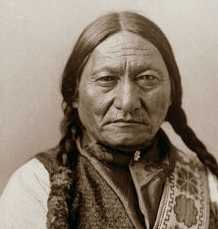
1890 – After many years of successfully resisting white efforts to destroy him and the Sioux people, the great Sioux chief Sitting Bull was killed by Indian police at the Standing Rock reservation in South Dakota.
Sioux Indians had been upset over a series of treaty violations in the Fort Laramie Treaty of 1851 by the U.S. involving land divisions among tribes in South Dakota and the U.S. running railroads through the reservation. There was also a dispute around the Black Hills land where gold was found in 1862. This all led to the “Ghost Dance” movement, a manifestation of Native Americans’ fear, anger, and hope regarding the onslaught of white invaders, U.S. Army brutalization, and the U.S. legislative oppression of indigenous nations.
Wrongly believing that Sitting Bull was the driving force behind the Ghost Dance, agent James McLaughlin sent Indian police to arrest the chief at his small cabin on the Grand River. They rousted the chief from his bed in the morning, hoping to take him away before his guards knew what had happened. When the fifty-nine-year-old chief refused to go quietly, a crowd gathered. Someone fired a shot that hit one of the Indian police and they retaliated by shooting Sitting Bull in the chest and head. The great chief was killed instantly. Before the ensuing gunfight ended, twelve other Indians were dead and three were wounded.
Two weeks later, the army brutally suppressed the Ghost Dance movement with the massacre of a band of Sioux at Wounded Knee, the final act in the long and tragic history of the American war against the Plains Indians.

1915 – Allied forces began a full retreat from the shores of the Gallipoli peninsula in Turkey, ending a disastrous invasion of the Ottoman Empire. The Gallipoli campaign resulted in 250,000 Allied (British, Australian and New Zealanders) casualties and a greatly discredited Allied military command. Roughly an equal number of Turks were killed or wounded.
As a result of the disastrous campaign, Winston Churchill, who had approved the invasion plans, resigned as first lord of the Admiralty.

1938 – Ground was broken for the Jefferson Memorial in Washington, D.C.
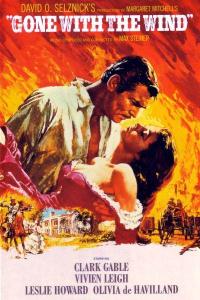
1939 – Gone With The Wind, starring Clark Gable and Vivien Leigh, premiered at Loew’s Grand Theatre in Atlanta, Georgia.
The Civil War epic would go on to receive ten Academy Awards (eight competitive, two honorary) from thirteen nominations, including wins for Best Picture, Best Director (Victor Fleming), Best Adapted Screenplay (posthumously awarded to Sidney Howard), Best Actress (Vivien Leigh) and Best Supporting Actress (Hattie McDaniel, the first African-American to win an Academy Award).
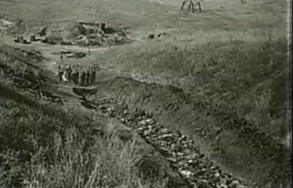
1941 – German troops murdered over 15,000 Jews at Drobitsky Yar, a ravine southeast of the city of Kharkly, Ukraine, Soviet Union. With temperatures in single digits, children were thrown into pits alive to save bullets, in expectation that they would quickly freeze to death.
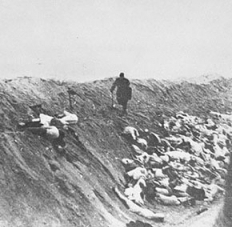
1941 – In Latvia, over 2,700 Jews were forced to strip before being shot and dumped into pits outside the German occupied town of Liepaja.
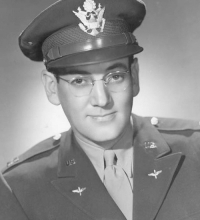
1944 – Bandleader Glenn Miller, who set aside his brilliant career right at its peak in 1942 to serve his country as leader of the USAAF dance band, boarded a single-engine aircraft at an airfield outside of London. The plane would go missing over the English Channel en route to France for a congratulatory performance for American troops that had recently helped to liberate Paris. The wreckage of Miller’s plane was never found. His official military status remains Missing in Action.
1945 – General Douglas MacArthur, in his capacity as Supreme Commander of Allied Powers in the Pacific, brought an end to Shintoism as Japan’s established religion. The Shinto system included the belief that the emperor, in this case Hirohito, was divine. Hirohito was forced to renounce his divine status, and he was reduced to little more than a figurehead.

1954 – Fess Parker made his debut as frontiersman Davy Crockett in Davy Crockett, Indian Fighter on the Disneyland television series. The popularity of the one-hour episode led to four more appearances.
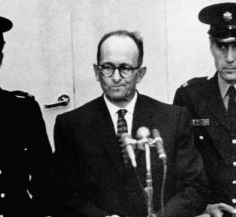
1961 – In Tel Aviv, Israel, Adolf Eichmann, the Nazi SS officer who organized Adolf Hitler ‘s “final solution of the Jewish question,” was condemned to death by an Israeli war crimes tribunal.
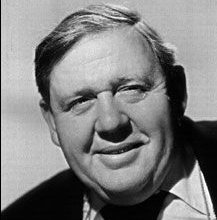
1962 – Actor Charles Laughton (Ruggles Of Red Gap, Jamaica Inn, Witness For The Prosecution, Mutiny On The Bounty, The Hunchback Of Notre Dame and The Private Life of Henry VIII), which earned him an Academy Award for Best Actor) died of kidney cancer at the age of 63.

1966 – Walt Disney died from lung cancer at the age of 65. He holds the record for both the most Academy Award nominations (59) and the number of Oscars awarded (22).
1967 – The Silver Bridge, on U.S. 35 between Point Pleasant, WV and Gallipolis, OH, collapsed during afternoon rush hour. 46 people died. Investigation of the wreckage pointed to the cause of the collapse being the failure of a single eyebar in a suspension chain, due to a small defect 0.1 inch deep. Analysis showed that the bridge was carrying much heavier loads than it had originally been designed for and had been poorly maintained.
1973 – Jean Paul Getty III, the grandson of American billionaire J. Paul Getty, was found alive near Naples, five months after his kidnapping by an Italian gang.
J. Paul Getty, who became the richest man in the world in 1957, had initially refused to pay his 16-year-old grandson’s $17 million ransom but finally agreed to cooperate after the boy’s severed right ear was sent to a newspaper in Rome. He eventually secured his grandson’s release by paying just $2.7 million, the maximum amount that he claimed he was able to raise.

1974 – After a contract violation on an annuity by Oakland A’s owner Charles Finley, pitcher Jim “Catfish Hunter” won arbitration and he was allowed to leave the Athletics as a free agent.
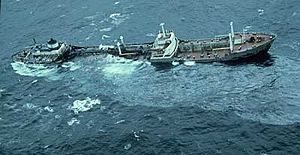
1976 – MV Argo Merchant, a Liberian-flagged oil tanker, ran aground and subsequently sank southeast of Nantucket. When the ship broke apart, 7,700,000 gallons of oil were emptied into the water. Fortunately, northwesterly winds blew the massive oil spill offshore, and coastal fisheries and beaches were spared the worst.
1978 – In one of the most dramatic announcements of the Cold War, President Jimmy Carter stated that as of January 1, 1979, the United States would formally recognize the communist People’s Republic of China and sever relations with Taiwan.
Carter’s announcement that diplomatic ties would be severed with Taiwan (which the People’s Republic of China insisted on) angered many in Congress. The Taiwan Relations Act was quickly passed in retaliation. It gave Taiwan nearly the same status as any other nation recognized by the United States and also mandated that arms sales continue to the Nationalist government. In place of the U.S. embassy in Taiwan, an “unofficial” representative, called the American Institute in Taiwan, would continue to serve U.S. interests in the country.

1982 – Paul “Bear” Bryant announced his retirement as Alabama football coach after losing to LSU and Auburn to close out the regular season.
“This is my school, my alma mater. I love it and I love my players. But in my opinion, they deserved better coaching than they have been getting from me this year.”
He coached one last time in the Liberty Bowl two weeks later, finishing his career with a win over Illinois. Following that game, Bryant was asked what he planned to do. He replied, “Probably croak in a week.” He died less than a month later.

1993 – Schindler’s List, starring Liam Neeson in the true story of German businessman Oskar Schindler who saved the lives of more than a thousand Polish Jews during the Holocaust, opened in theaters. The film was nominated for 12 Academy Awards and took home seven Oscars, including Best Picture and Best Director.
There were, in my humble opinion, three glaring omissions from the winners’ list. Neeson was nominated for a Best Actor Academy Award but did not win. Ralph Fiennes was nominated for a Best Supporting Actor but did not win. Ben Kingsley, who was outstanding in the role of Itzhak Stern, wasn’t even nominated!
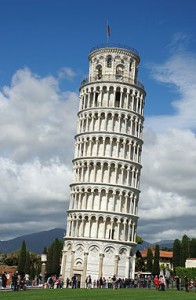
2001 – Italy’s Leaning Tower of Pisa reopened after a team of experts spent 11 years and $27 million to fortify the tower without eliminating its famous tilt.
2003 – The late Sen. Strom Thurmond’s family acknowledged Essie Mae Washington-Williams’ claim that she was Thurmond’s illegitimate mixed-race daughter.
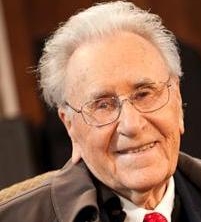
2009 – Televangelist Oral Roberts, one of the most well-known and controversial American religious leaders of the 20th century, died from complications of pneumonia at the age of 91. Presumably he then met “900-foot-tall Jesus.”
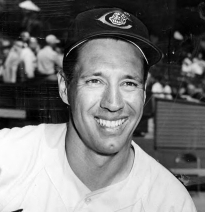
2010 – Baseball Hall of Fame pitcher Bob Feller died of complications from leukemia at the age of 92. Boston Red Sox great Ted Williams – who knew a thing or two about hitting – called Feller, “the fastest and best pitcher I ever saw during my career.”
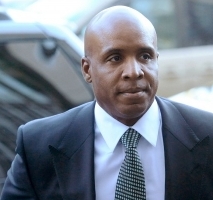
2011 – Former baseball slugger Barry Bonds was sentenced to 30 days of house arrest, two years of probation and 250 hours of community service, for an obstruction of justice conviction stemming from a grand jury appearance in 2003.

2013 – Actress Joan Fontaine (Rebecca for which she earned an Academy Award nomination for Best Actress, and Suspicion, which won her an Oscar as Best Actress, making her the only actor/actress to ever win an Academy Award in a film directed by Alfred Hitchcock) died of natural causes at the age of 96.
Compiled by Ray Lemire ©2014 RayLemire.com. All Rights Reserved.
You may not, under any circumstances, reproduce, record, publish, republish, post, transmit, publicly display, publicly exhibit or distribute any articles or photographs on RayLemire.com without obtaining the express written consent of the Operator.